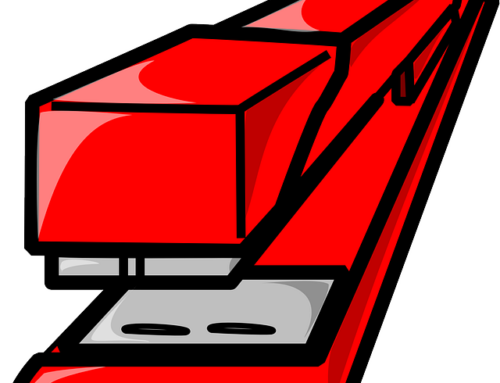By Eddie Pipkin
Everybody tries their best to create a workplace atmosphere that resists boredom, frustration, and tension with ministry partners.  But increasingly, those who study creativity and the processes that promote it are reaching the conclusion that some of the very things we think are accomplishment killers may be unexpected catalysts that can propel us to greater innovation and breakout ideas. Instead of resisting the inevitable, maybe we should accept it and use it for good.
But increasingly, those who study creativity and the processes that promote it are reaching the conclusion that some of the very things we think are accomplishment killers may be unexpected catalysts that can propel us to greater innovation and breakout ideas. Instead of resisting the inevitable, maybe we should accept it and use it for good.
“I’m bored” is equally familiar as a mantra from eight-year-olds and middle-aged office workers, but we need down time for our brains to reboot and integrate the many sources of input we deal with every day. Technology has become a major disruptor in our ability to relax, clear our heads, and have space to make connections that lead to creative breakthroughs. The chief protagonist in our fading ability to sit quietly and observe, daydream, and think for ourselves is the ubiquity of pocket computers (aka our cell phones). Because we literally receive a dopamine rush whenever we read or watch something new, that urge that compels you to scroll through news and social media feeds on your phone is a kind of biological addiction. And like any addiction, it’s tough to kick. Any time we don’t explicitly have a task in front of us, out comes the smartphone, like rats looking for a crumb of cheese.
This constant filling of what used to be “bored space” diminishes our deeper thinking skills and our ability to synthesize information and make useful connections. At the same time, this act of constant scrolling creates a false of sense of “getting something done.” We should cultivate more boredom, the ancient art of patiently enduring and the ability to reflect. Check out this fun, informative (and brief) video from the BBC: “Why Boredom Is Good for You.” Also, if you want to explore some specific strategies of how to be usefully and productively bored, check out this article from Quiet Revolution: “4 Ways to Make Space in Your Brain to Create.”
Frustration is another mental condition we seek to avoid at all costs, structuring our work environments to reduce built-in frustrations and engineering our work relationships so that we spend the most time with people we enjoy hanging out with, as Adam Grant observes:
We normally avoid frustrated people — we don’t want to get dragged down into a cesspool of complaints and cynicism. We see dissatisfied people as curmudgeons who halt progress, or, worse yet, Dementors who suck the joy out of the room. And we have good reason to feel that way: A natural response to frustration is the fight-or-flight response. Disgruntled people often go into “Office Space” mode, choosing to fight by sabotaging the workplace, or flight by doing the bare minimum not to get fired.
But there’s a third reaction to frustration that we’ve overlooked: When we’re dissatisfied, instead of fight or flight, sometimes we invent.
Frustration is the feeling of being blocked from a goal. Although it sounds like a destructive emotion, it can actually be a source of creative fuel. When we’re frustrated, we reject the status quo, question the way things have always been done, and search for new and improved methods. But there’s evidence that dissatisfaction only promotes creativity when people feel committed to their team and have the support they need to pursue their ideas.
Three is a long and honorable history of ministry folk who were propelled to good works by “holy discontent.” By this standard, Jesus, himself, often seems frustrated with the religious leaders of his time. He proposes a whole new world view, actualizing God’s grace in surprising ways. Imagine if, instead of constantly working to tamp down the discontented folks on our ministry teams, we freed them up to pursue the holy restlessness? We can even incentivize it, offering this kind of deal to the disgruntled: “Look, if you will cooperate on helping us accomplish Goal A, you can have permission to swing for the fences and follow your passion with Goal B.”
That’s advice for managing the antsy and unruly. But writer Chris Bailey also reminds us that, while we identify “laziness” as a synonym for unproductivity, some strategic laziness is good for the soul and for the bottom line:
Laziness is a lost art. I don’t mean laziness in the sense of filling each moment with mindless distraction. I mean proper idleness, when we choose to do nothing. In a world of constant distraction, we rarely put our mental feet up. Instead, we spend our spare time bouncing between novel distractions — going from checking our email, to reading the news, to surfing Facebook, and so on — activities that often make us even more tired.
In any given moment, our attention is either focused or unfocused. Focus gets all the attention — it’s what lets us get work done, have meaningful conversations and move our lives forward. But as it turns out, research shows that unfocusing is just as powerful, albeit in diff rent ways. While focusing makes us more productive, unfocusing makes us more creative.
Bailey makes the case that most of us ministry workaholics should probably be more lazy more often – or at least feel less guilty for embracing more of what feels like “idle time.” He is clear, however, that the clear differentiation between useful and non-useful laziness is moderation and intentionality. You have to have a strategy. But we need space:
- For Resting.
- For Planning.
- For Unearthing ideas.
That’s why you hear stories about great ideas coming to people in the middle of a shower, a long walk through the neighborhood at sunset, or floating in the pool. Our brains our designed to process complex ideas better when they have room to roam without the tyranny of a to-do list. Productivity is actually increased among people who take time out to chill: we might be grinding the stone for less hours, but if we make space to unplug, we get more useful grinding done during the hours we do grind.
And don’t get me started on the myth that we should all be multitasking all the time. More and more brain science points to the fallacy of this philosophy, as noted by Cynthia Kubu and Andre Machado:
For nearly all people, in nearly all situations, multitasking is impossible. When we think we’re multitasking, most often we aren’t really doing two things at once – but instead, individual actions in rapid succession.
The neuroscience is clear: We are wired to be mono-taskers. One study found that just 2.5% of people are able to multitask effectively. And when the rest of us attempt to do two complex activities simultaneously, it is simply an illusion.
When we try to juggle multiple things at once, we are losing our ability to think deeply:
- We sabotage our ability to be attentive. We increase our impatience.
- We decrease our ability to learn complex ideas. Everything becomes rapid fire stimulus at the expense of deeper concepts.
- We destroy our sense of mindfulness. We barely have time to “be in the moment,” because we are so frenetically pushing ahead to the next moment.
And even if we master the skills of slowing down, being a little more lazy and a little more mindful, sometimes as Christians we beat ourselves up in ways that stunt possible creative energy. Consider the matter of holding a grudge. We know we shouldn’t, and most of us feel bad when we do, but just as there is such a thing as righteous anger, sometimes it’s useful to lean into our grudge – it’s another form of that holy discontent we discussed earlier. Annabel Gutterman describes it like this, citing the work of Sophie Hannah:
Too often, we’re told that to start fresh in the new year, we first need to find closure. Instead, British writer Sophie Hannah argues, we should embrace some healthy stubbornness.
Hannah, author of How to Hold a Grudge, wants you to start keeping a grudge budget — she’s called it a “grudget” — wherein you can decide which grudges are valuable to you and invest in them accordingly. “A grudge doesn’t have to be vengeful, all-consuming and bitter,” Hannah writes — so start thinking about grudges as a way to find power in bad memories.
Used in this constructive way, the grudge is not just a negative drain on our focus: it becomes a catalyst for remembering our priorities. It can help us define goals for things that we want to change, then motivate us to stick to the task of making positive change happen.
All of these strategies are ways that we can take characteristics that are usually frowned on and flip the script to make them a source for new ideas and redirected energy. Rather than wasting time denying natural feelings and impulses, we manage those feelings and impulses for more productive outcomes. We acknowledge our humanity and in doing so empower hidden strengths.







Leave A Comment